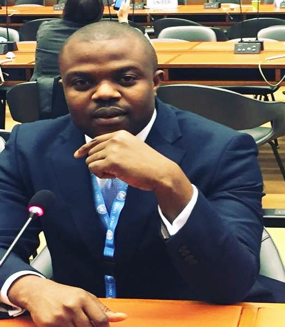
JUSTICE UNDER LOCKDOWN
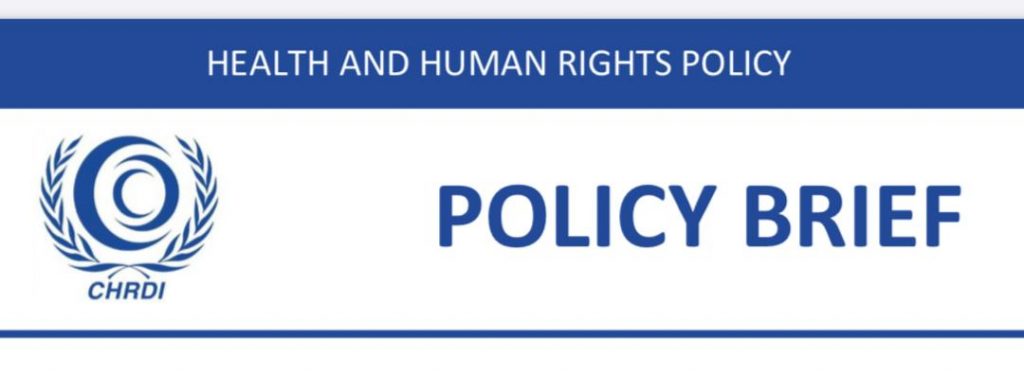
By Campaign for Human Rights and
Development International (CHRDI)
INTRODUCTION
Constitutional supremacy, and the vindication of rights, is only possible where there is access to justice and where the constitution guarantees its citizens rights; be it fundamental or statutory. Public power must maintain conformity with constitutional provisions because where there are rights, there are bound to be those who infringe them.
Justice has got to be open. It is a fundamental part of our democracy. It has to be visible but in a case like Sierra Leone, where you only have 63 judges and magistrates serving a population of over 7 million people, there is a lot to be desired, especially in periods of national or global emergencies that may hinge on the Human Rights of citizens.
Sierra Leone’s Judicial System during the Pandemic
Like any crisis, COVID-19 has increased the pressure on our national institutions and highlighted existing cracks. Our public health system cannot do large-scale contact tracing, our schools struggle to bridge the digital divide; and our legal system cannot deliver justice to all our citizens.
Sierra Leone officially had its first case of COVID-19 on March 30, but no control measures were established to prevent the spread of the disease until March 25th when the President of Sierra Leone declared a 12-month National public health emergency to tackle the coronavirus pandemic and to guarantee the right to health for all citizens.
Although COVID-19 is a public health emergency that cannot be dealt with as a law and order problem, it was obvious that the prevailing situation was abnormal and the people’s right to access justice was impaired.
Although the WHO declared COVID-19 as a public health emergency on January 30, 2020, the courts in Sierra Leone continued to function through to the last week of March.
Sierra Leoneans were unable to use their jurisdictional guarantees for over two weeks for all criminal matters and civil matters over a month amid a state of emergency. This situation of limited access to justice was especially dangerous in a moment of concentration of power and a devastating health crisis.
Many accused persons were locked up in police cells across the country, languishing in detention facilities unjustly, while suspects were being held unlawfully at the CID without being charged to court, a clear violation of section 17 of the 1991 constitution.
The unlawful detention of these citizens is violating their human dignity and destroying their lives. To detain citizens without charge and with no regard for due process is in clear violation of the laws of Sierra Leonean and international Human Rights Law. The Universal Declaration of Human Rights states that no one may be subjected to arbitrary arrest, detention, or imprisonment. All defendants have the right to a fair trial.
The anti-Coronavirus pandemic measures have not only affected many spheres and functions of the State and society, but they have also affected justice systems as the normal operation was interrupted, suspended, or adjusted to fit the new circumstances.
In Sierra Leone today people are held without due process and prisoners are convicted in unfair trials and even though citizens have a constitutional right to written charges within 24 hours of detention, this is rarely observed.
State capacity to protect citizens from abuse by private and non-state actors is limited by serious logistical and financial constraints. Citizens should have statutory rights of redress when state authorities violate their rights.
In addition, the COVID-19 crisis puts women and children at further risk of violence as it restricts women’s ability to deploy their usual safety strategies; for example, not being able to stay with relatives or send children out to play when the level of abuse is escalating. While such measures may have been seen as necessary to effectively tackle the pandemic, the limited operation of the courts, as well as limitations on access to legal advice, have implications for access to justice and the right to a fair trial. They also raise questions of the capacity of the judicial system to provide redress for possible violations of human rights related to the pandemic and the consequent emergency measures.
POLICY MOTIVATION
Legal services are essential activities that are urgent for all those who knock on the doors of justice. One can never deny access to justice to anyone, even in times of a lockdown. The 1991 Constitution of Sierra Leone established the Judiciary – consisting of the entire body of courts in Sierra Leone and the machinery that governs them – as an independent third organ of Government. The Chief Justice is the Head of the Judiciary of Sierra Leone and, acting on the advice of the Judicial and Legal Service Commission of which he is chairman, is responsible for the “effective and efficient administration of the Judiciary.
The President can, upon the advice of the Judicial and Legal Service Commission, appoint a qualified person to act as a judge in any of the superior courts when a vacancy exists or where exigencies so demand. Appointees serve based on a contract on temporary terms and conditions.
In Sierra Leone, the powers of the Attorney General and Minister of Justice are vested in a single individual. He is the chief legal advisor to Government and full Cabinet Minister. The Attorney General has been a Minister with cabinet rank since the 1971 “Republican Constitution” was enacted, but only additionally became Minister of Justice in 1978 with the promulgation of the “One-party Constitution”. Although the functions of the Minister of Justice are not identified in the Constitution, the minister is the official link between the Judiciary and Parliament/Cabinet and is responsible for judicial affairs.
The system of “self-accounting” used by the judiciary, which enabled it to use the income it receives for services provided to fund its operations, was abandoned in the 1970s and the judiciary became wholly financially dependent on the Ministry of Finance which controlled the Consolidated Fund. The Attorney General was given powers over “judicial affairs” in 1978.
All this has arguably diluted judicial independence from the executive. Judges and magistrates are widely perceived as corrupt and the justice system came to be seen as an instrument of state power and wealthy interests. As a result, a reservoir of resentment developed towards the judiciary among those who had received unfair treatment at its hands.
POLICY IMPACT
Increased vulnerabilities are in turn likely to lead to a surge of legal needs, especially for SMEs, entrepreneurs, middle income, and disadvantaged groups, which may in turn increase the pressures on social and economic systems, thus adding to the vicious cycle in the Judiciary. As such, any pathway for recovery must integrate accessible and people-centered justice systems as a core pillar, as legal and justice services, play a major role in restoring economies, social cohesion, and confidence in institutions.
Indeed, there is a need for rapid and decisive action by the government to ensure that the most vulnerable people and economic agents have the necessary legal support and access to channels to address their legal problems, thus highlighting the importance of a broad and coordinated policy response that includes the provision of basic legal services.
The years of human injustice that had led to global upheavals or emergencies made it imperative for the drafters, of constitutions, international conventions, and other legal instruments not to give governments a free hand in managing crises. The derogation provisions, in other words, strike a carefully weighed balance between, on the one hand, the needs of the State and, on the other, the right of individuals to have most of their rights and freedoms effectively protected in public emergencies and to have guarantees that the exercise of other rights will not be subjected to undue limitations. Although some differences exist between the three relevant provisions, this basic tenet is equally valid for all.
States may apply various terms to the special legal order introduced in crises such as “state of exception”, “state of emergency”, “state of alarm”, “state of siege”, “martial law” and so forth. These exceptional situations often involve the introduction of special powers of arrest and detention, military tribunals, and, for instance, the enactment of criminal laws that are applied retroactively and limit the right to freedom of expression, association, and assembly. Worse, in many situations of upheaval, States have recourse to torture and other forms of ill-treatment to extract confessions and may also, with or without the help of private or semi-private groups, resort to abduction and extrajudicial killings. Furthermore, the right to have recourse to domestic remedies such as the writ of habeas corpus may be suspended, so that, for instance, victims of arbitrary arrest and detention are left without legal protection, with devastating results.
This abusive use of extraordinary powers is not lawful under the aforementioned treaties. These treaties provide States parties with limited but flexible and well-balanced exceptional powers designed to restore a constitutional order in which human rights can again be fully ensured.
Sierra Leone has signed and ratified many international and regional conventions and protocols dealing with crime, war, human rights, gender issues, etc. Overall, the country has demonstrated a reasonable degree of commitment to international obligations. However, there is too long a time-lapse between ratifying an instrument and implementing it via domestication.
The current attitude and behavior of the Judiciary in Sierra Leone are not consistent with either Sierra Leonean or international law. There is no system for genuine evaluation and validation of judges and no clarity on why some judges were removed and why others were not.
There is a real risk that bad governance could establish a new culture in the judiciary where judges view the executive as their superiors. Many magistrates, judges, and human rights organizations believe that the executive will likely persist in its attempts to gain control over the courts. Therefore, the argument goes, the judiciary needs to build support elsewhere to survive as an independent institution. Such support would have to be based on a more genuine understanding of the court system than has been the case in the past when they say that talk of judicial reform from donors has failed to translate into real and sustainable change.
Our judges have struggled to build the necessary trust and respect among key actors for this support to take root. Instead, lack of trust and frustration over a judiciary that falls short of its duties has led to growing tension with groups that should otherwise be natural allies for positive reform in the justice sector. One example is the tension between the Sierra Leone judiciary and some civil society z organizations. These organizations, who are also experiencing a closing space for their operations, often do not speak up in support of the idea of judicial independence.
So many Sierra Leoneans are unaware of laws that are meant to protect them. Others are unable to avail themselves of good rules or systems due to cost, dysfunction, corruption, or abuse of power. Often, the law itself is unjust. As a result, injustice is the norm for most people in this country.
Justice problems can fuel conflict, damage livelihoods, and undermine the sacred UN compact between governments and the citizens. For example, uneducated farmers are putting their thumbprints on decade-long lease agreements, surrendering their land to multinational companies with no understanding of the terms.
AUDIENCE
The office Attorney-General and Minister of Justice, the Office of the Chief Justice, Law Reform Commission, legal service providers, International NGOs, Local NGOs, and the general public.
POLICY IMPLICATIONS
The COVID-19 pandemic and government’s responses to it are having an unprecedented effect on the functioning of justice systems globally. Our courts were closed, reducing, or adjusting their operations, which negatively impacted the provision of timely and fair hearings, contributed to increased case backlogs, and led to increased length of judicial and administrative proceedings.
Access to justice is recognized as a basic human right by the international community and is read into every constitution of a democratic sovereign irrespective of whether it’s written or unwritten. The right to access justice is a very important facet of rule of law.
Campaign for Human Rights and Development International CHRDI promotes access to justice through advocating for an independent and accountable judiciary in Sierra Leone. CHRDI engages the judiciary with the focus on the rule of law, human rights, with a view to constitutionalism. The principal means of delivering civil and criminal justice is through the formal courts of law. However, access to justice in Sierra Leone has been bedeviled by myriad challenges, including geographical location, the complexity of rules and procedure, use of legalese, understaffing, lack of financial independence, lack of effective remedies, a backlog of cases that delay justice, lack of awareness on ADR and traditional dispute resolution mechanisms.
POLICY IMPLEMENTATIONS
The right to Access Justice has been made an integral part of numerous international pronouncements such as ICCPR, CESCR, and UNCRC, etc.
In democratic, market-based societies, independent and impartial judiciaries contribute to the equitable and stable balance of power within the government. They protect individual rights and preserve the security of person and property. Principle 2 of the U.N. Basic Principles on the Independence of the Judiciary defines judicial impartiality as judges deciding on matters before them based on facts and under the law, without any restrictions, improper influences, inducements, pressures, threats, or interferences, direct or indirect, from any quarter or for any reason. Regardless of structural variations, most governments share the goal of impartiality for their judiciaries.
It has been said that access to justice entails “the provision of dispute resolution mechanisms which are affordable, proximate and ensure speedy justice and whose processes and procedures are understood by users”. In this broader context, access to justice includes issues having to do with the accessibility of courts (including other judicial and quasi-judicial fora), the language of court proceedings including interpretation services, court fees, public participation in the administration of justice, accessibility to persons with disability and availability of information.
POLICY RECOMMENDATIONS
Most urgently, an effective system must be put in place to protect the position of the judges and the integrity of the Judicial Council from outside interference.
- Every decision relating to a judge’s appointment and career should follow a transparent process and be based on objective criteria.
- Disciplinary procedures must be designed to guarantee a transparent and predictable process, defining not just the conduct which may lead to removal from office, but also all conduct which may lead to any disciplinary steps or change of status, including for example a move to a different court or area.
- Disciplinary measures must be proportionate, and judges should always be entitled to appeal disciplinary sanctions.
- Judicial training will be essential in equipping judges, magistrates, and other judicial officers with the pertinent knowledge and skills in discharging their responsibilities more efficiently.
- Aware of the need to guarantee the position and powers of judges to achieve an efficient and fair legal system and encourage them to commit themselves actively to the functioning of the judicial system.
- Conscious of the need to ensure the proper exercise of judicial responsibilities, duties, and powers aimed at protecting the interests of all persons.
- All necessary measures should be taken to respect, protect, and promote the independence and impartiality of judges.
- The law should provide for sanctions against persons seeking to influence judges improperly.
- The government of Sierra Leone should allocate adequate resources, facilities, and equipment to the courts to enable them to function under the best practices standards and to enable magistrates and judges to work efficiently.
- Magistrates and Judges should be provided with the information they require to enable them to take pertinent procedural decisions where such decisions have financial implications. The power of a judge to decide a particular case should not be solely limited by a requirement to make the most efficient use of resources.
- A sufficient number of magistrates, judges, and appropriately qualified support staff should be allocated to the courts across the country.
- To prevent and reduce excessive workload in the courts, measures consistent with judicial independence should be taken to assign non-judicial tasks to other suitably qualified persons.
- The use of electronic case management systems and information communication technologies should be promoted by both authorities and judges, and their generalized use in courts should be similarly encouraged.
- All necessary measures should be taken to ensure the safety of magistrates and judges. These measures may involve the protection of the courts and of judges who may become, or are victims of, threats or acts of violence.
PRODUCED BY:
Campaign for Human Rights and Development International (CHRDI), Rights-based social-policy advocacy Organization. We draw attention to the responsibilities of duty-bearers to uphold human rights and seek to support rights-holders to claim their rights. CHRDI is in Special Consultative Status to the United Nations Economic and Social Council and accredited to many UN Agencies.

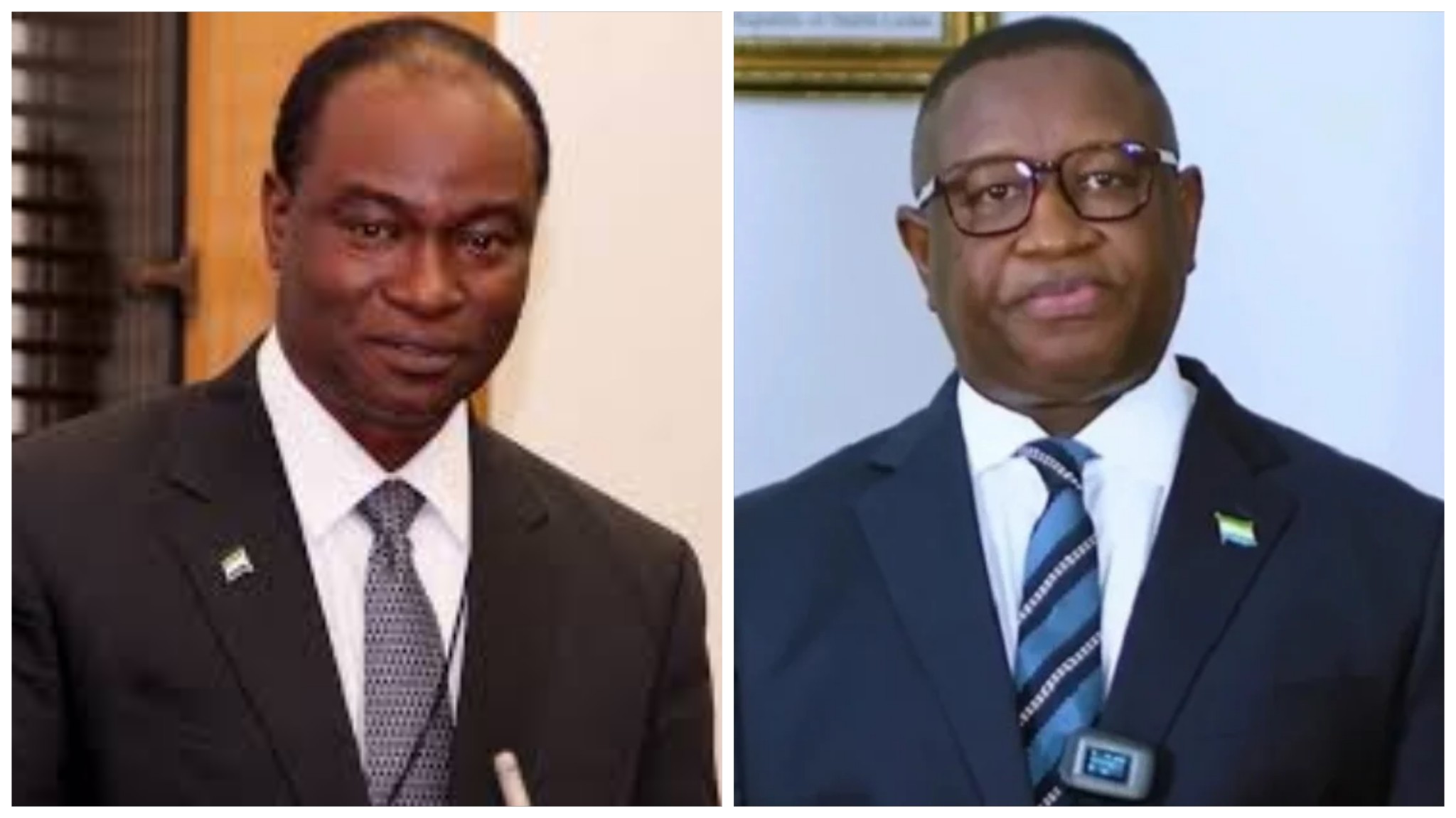
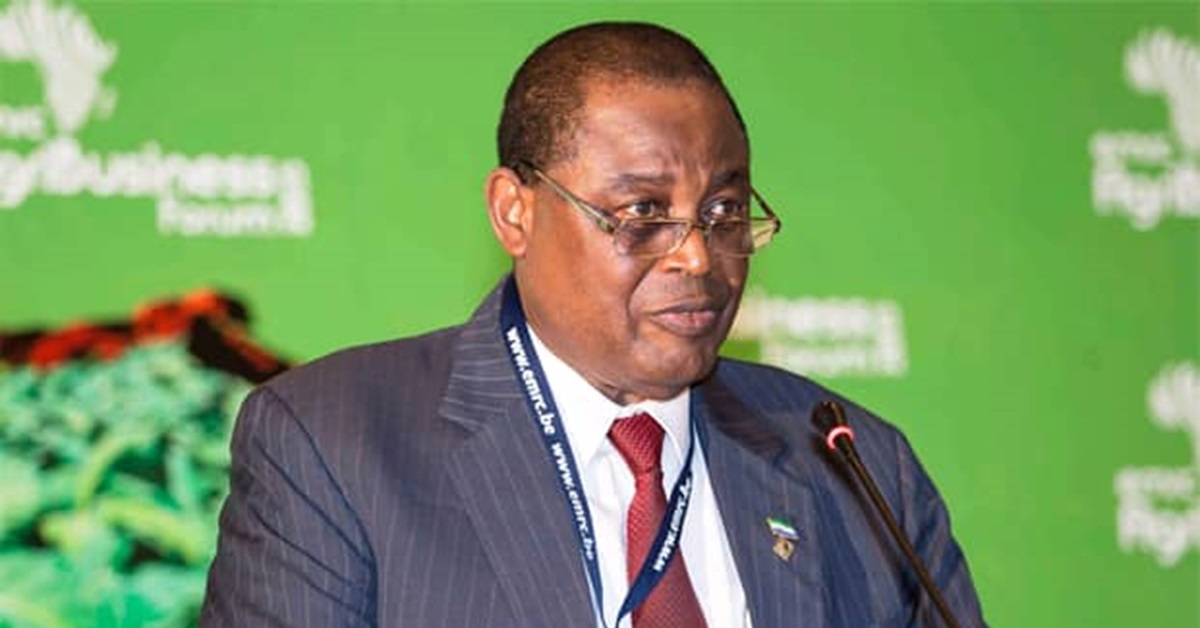
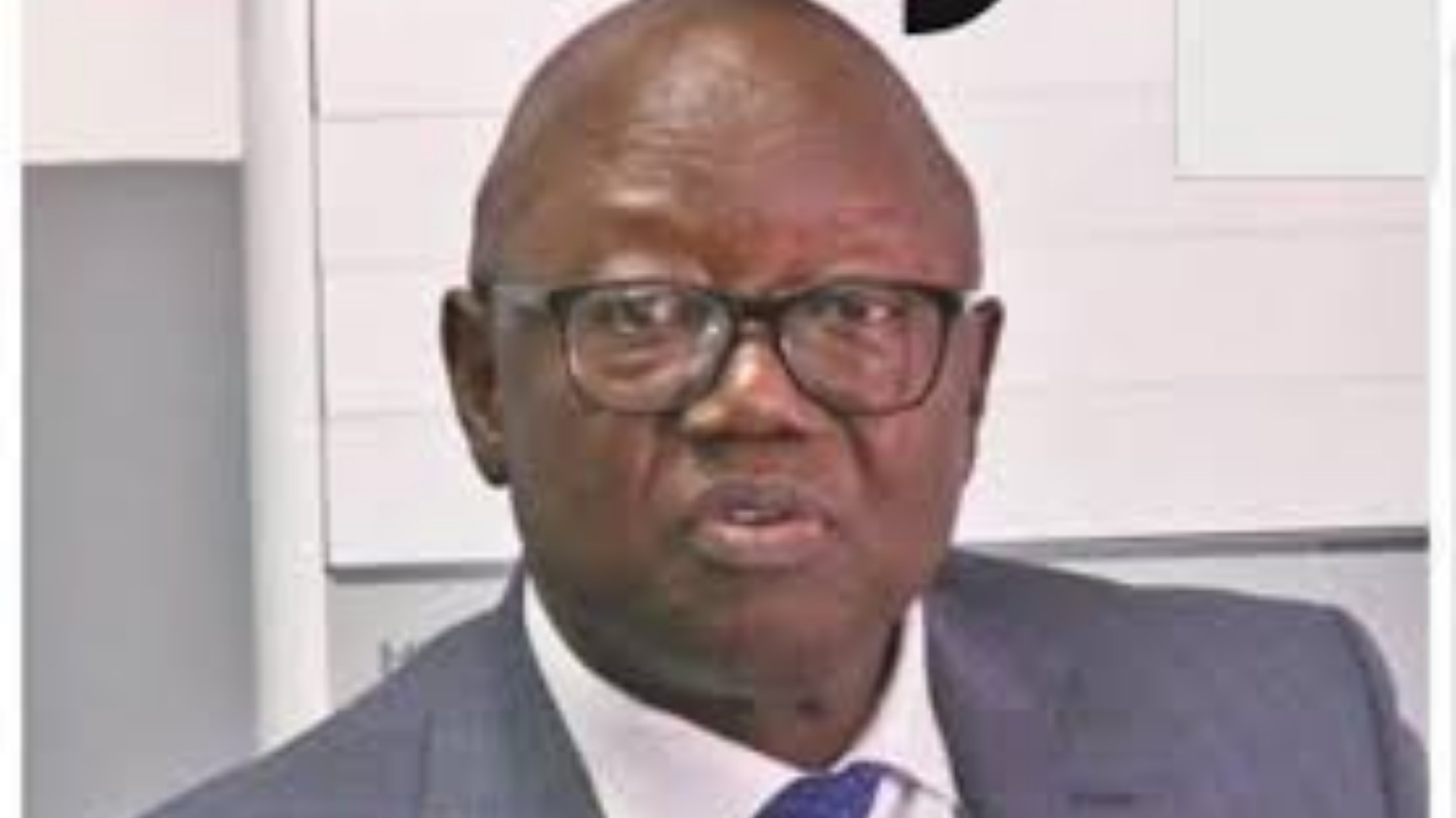
God bless all peace hearted people of Sierra Leone.
My aim is to hear and see Sierra Leoneans think positive about our country.
With regards
Hassan Kay